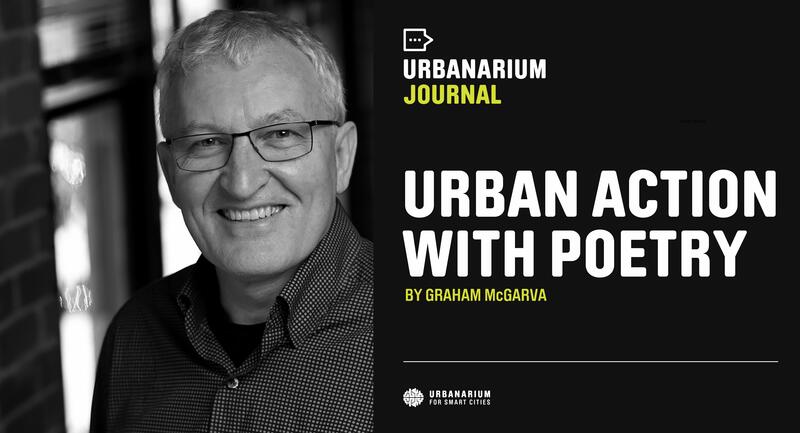
Placemaking is Dangerous
Placemaking is dangerous; because it changes things. This always threatens something. The making of Place starts as unformed thought groping for substance. Poetry explores how it may thrive, or else (misplaced, or lost and lacking delight) firmness and commodity muscle in, and make believe that value lies in the transaction rather than the transformative experience.
Place can give us illusion of belonging, shelter all manner of things, come between people. Its making can set up expectation that things are going to be better, encourage people to do things they may not otherwise have done, gather together for comfort and speculation.
Tragedy is when placemaking leads to a Nothing place - transformation unworthy of value. Because Place doesn’t end; it surrounds our childhood, maturity and aging (which all travel through one Place or another), until re-placed.
“What Poem is this Place?” needs always be asked and, stumbling if need be, Poetry can guide Place shaping, before the sirens chase after calamity or barricades tumble over its precipice.
To prevent the high ground sinking in darkness, we light these flares of Poetry to illumine the heart of the matter and point to that better place.
---
Place mattering matters. And what matters most, is that it matters. Valuing the question matters more than grabbing the mouse’s pencil. Poetry and Mathematics sparked the essential dialectic through all my work in planning and building urban transformation. Asking “What Poem does this place want to be?” served us well around the False Creek and Burrard inlet waterfronts and through the Expo, Millennium, Canada Line communities that I was fortunate to work on.
Poetry is not complete, no more than Mathematics, in reconciling all the complexities of making places worthy of affection for creators and captives alike. But Poetry moves us to think, and Math only moves as instructed. “What Poem is this Math?” is the real question. Math is meaningless if not rooted in the Poetry of place - that resonant song of what and who it serves, highlighted by refrains of who it fails, and what we need to do about that.
In forty years I have seen City Building move from being a secret code of the cognoscenti, to a checklist driven calculation. This is hardly progress, and worryingly the value of value has shifted from being a cultural aspiration to financial abstraction. The stakes, and the buildings, are getting taller. In a polarised world that presses for ‘fast-brain’ click bait decisions, ‘slow brain’ layers of considered thought are trampled into silence. Aspiration for the health of the commonwealth beyond the property line is essential. It starts not just with yay or nay, but a strong voice of careful consideration of context in each and every proposition for urban transformation.
Happiness cannot be codified in the Zoning Bylaw, but the randomness of delight is no less essential. “How does this building meet the ground?” “Who does it meet there?” “What does this have to do with what was here before?” “What does this mean for who will come next?” If your answers are couched in terms of fear, you don’t need a poem to tell you that the math is not right. Poetic vision is essential to guide transformation to the right place. Everything changes, but our desire for belonging never goes away. This is the foundation of delight, without which the city has no point. Poetry is a spark for Actors in urban transformation, designers to decision makers, to light up our faces joyfully, not consume us from dust into ash.
The discussion of how to trigger and share that delight, is what the approval process needs to weigh, in equal consideration to the Mathematics of monetary advantage. Poems if need be; but whatever resonates with heart - rational decision making rooted in emotion.
To address this crying need, and inform our work as community members, a group of urban thinkers and poets have come together as the Place Mattering Matters Collective. Our aim is to activate discussion, within our heads and with others, about the qualities and priorities of creating, and living with, our shared urban environment. Few actively participate in urban placemaking, but those actions profoundly affect everyone. Not only does Place Matter, but that it matters is essential for the health of our urban community. After all, the goal of city building is that the café canopy be in the right place.
To get these thoughts rolling and emphasise the high stakes involved, the accompanying lyric prose manifesto launches the philosophical and emotional proposition of the Place Mattering Matters Collective. This declares that healthy city building needs the Mathematics of development to be subject to the Poetry of place. Place Mattering is a clarion call to shape growth rather than suffer from it.
The Place Mattering Matters Collective is: Daniela Elza, a poet and creative writing educator; Maria Roth, a graphic artist and textile designer; and Richard Evans and Graham McGarva, poets who have practiced at architecture for decades and are both Fellows of the Royal Architectural Institute of Canada. All four live on leased land in Vancouver’s False Creek, on the unceded territories of the xʷməθkʷəy̓əm, Sḵwx̱wú7mesh, and səlilwətaɬ.